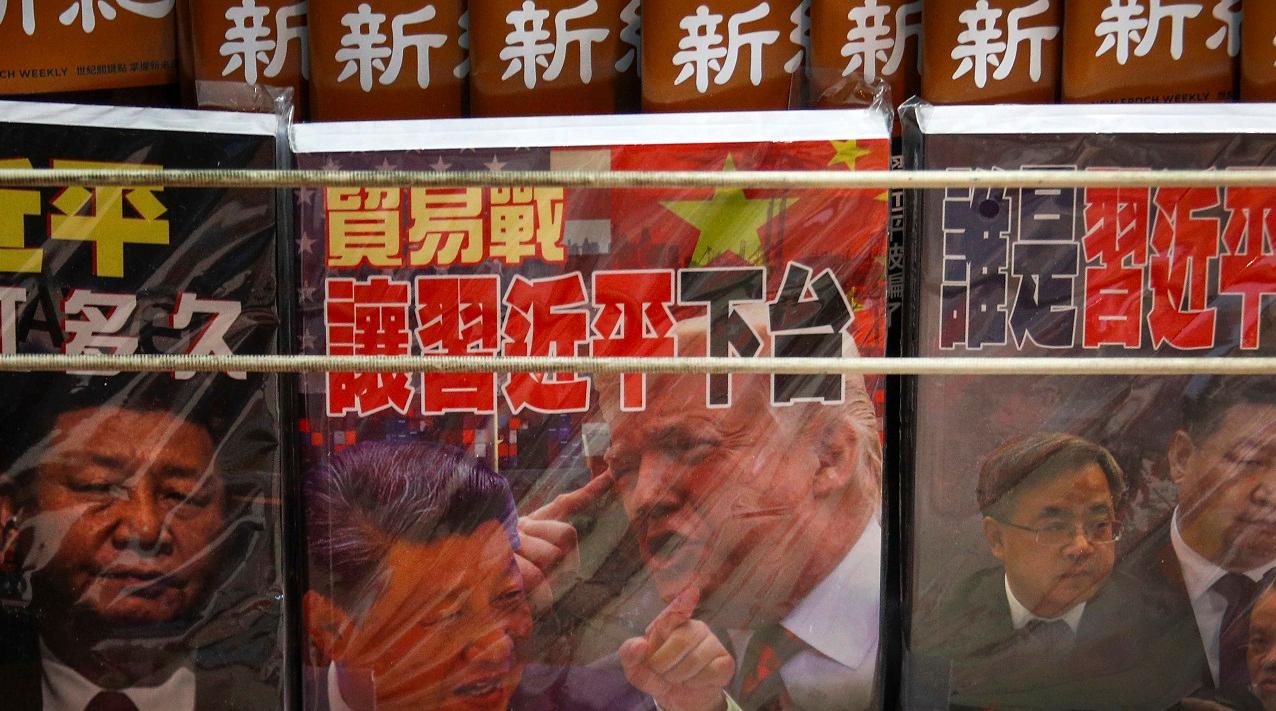Chinese Official to Fox Business: China won't lose face by compromising on trade
President Trump believes America is winning its trade war with China, and the country is poised to give the United States what it wants when the two sides restart their negotiations later this month. Yes it is true that the Chinese economy is hurting because of the Trump tariffs, and the Chinese would like to go back to the old way of doing business with one-sided arrangements that put US companies at a disadvantage, and allow rampant Chinese theft of US intellectual property.
But that doesn’t mean the Chinese will cave to US interests as the trade talks resume. In fact, there’s a good reasons to believe that for all the upheaval the trade showdown has caused China (and yes, the US), the chances of the Chinese caving much to US demands remains pretty slim.
Earlier in the week, I was invited to a private dinner hosted by a prominent real estate investors who feted a top Chinese diplomat. The dinner was attended by about 40 people, many of them Wall Street executives who do business overseas including in China. I was the lone reporter in the group, and the ground rules prevent me from disclosing the names of the people who attended and spoke.
The president can talk all he wants that the Chinese wanting a trade deal; and they may. But they want one that favors THEM.
The Chinese diplomat was gracious, and fittingly very diplomatic. He gave some remarks, mainly about how our countries have much to gain by cooperating on trade, and how he believes Americans are a great people but they don’t understand the Chinese and the country’s economy, a Communist variant that is unlike what existed under Mao, or the old Soviet Union because it has increasingly adopted free-market policies over the past 30 years or so.
Those policies, he said, have brought rapid change to a country where most people needed government vouchers to purchase staples such as food or soap. China now has a thriving middle class. It has eradicated huge swaths of poverty since this economic transition began. China did this by adopting capitalist economic policies, which included increasingly open markets to US companies, and vice versa.
This official isn’t directly involved in the trade talks, but he’s high enough in the government to know the talking points that will be pushed in the coming weeks. So when he opened the floor to questions, I asked one about trade, specifically, “don’t you need to compromise with the United States on major areas like intellectual property theft, greater access to your markets for US companies, in order to avoid a trade war that will damage both sides?”
That’s when the diplomat dropped all pretenses of being diplomatic and his answers became more pointed. Again, he said China would prefer NOT to have a trade war with the US but the Chinese believe the American government misunderstands China’s motives in its approach to trade.
The country is not trying to take over the world economically, he said. Rather, it is 100 percent committed to eradicating poverty in the mainland. His point to me was this: Since the economic reforms began in the early 1980s, China has lifted more than 800 million people out of dire poverty. Today, about 20 million people still face intense destitute conditions.
"This is much different than poverty in the US," he told me. It's more extreme and he said there can be nothing that deters the country from its goal in eliminating poverty.
So I raised the point: How about a compromise on trade that might stall some of the country's immediate anti-poverty efforts, meaning that there will be some short-term pain for long-term gain. We avert a trade war; long-term, both economies continue to grow and prosper.
He dismissed that scenario as well; his country, he said, can’t be deterred in its anti-poverty program. And he said one more thing: Threats from the White House will never work. In fact, saber rattling about tariffs, or Trump’s boasts that the Chinese will be forced to make a deal, and those absurd insinuations from the administration that Robert Mueller’s failure to indict the president made the US’s hand on the trade talks stronger, only made the Chinese dig-in more.
The reason: The Chinese, he said, can never be seen to lose face. The key to any leader’s longevity, even a nominal leader for life like President Xi Jinping, is not showing weakness in the face of Western aggression.
Yes many Americans, and this administration in particular, see the Chinese as the aggressors militarily in their sphere of influence and economically. But the Chinese see their tactics not as aggression, but as leveling the playing field following decades of colonialism from the West. There is national pride in China as well, and he referenced the Opium Wars of the 1800s, in which Britain and France, through military action, subdued the Chinese economy, turning China from a net exporter and one of the world’s most vibrant economies, into a backwater.
That, he said, will never happen again.
CLICK HERE TO READ MORE ON FOX BUSINESS
The president can talk all he wants that the Chinese wanting a trade deal; and they may. But they want one that favors THEM. And it doesn’t sound like they’re about to compromise on many key issues. In their view, the theft of IP is a means to a necessary end: Growing their economy, and eradicating poverty. US Tariff threats are seen through the prism of western colonialism, not our view of Chinese economic aggression.
In other words, these aren’t the ideal conditions for a big breakthrough on trade.




















